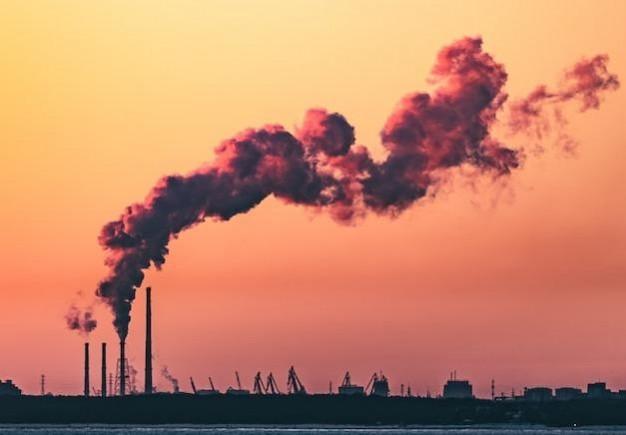
Global warming has accelerated to 1.19 degrees Celsius between 2014 and 2023, primarily due to human activities. High greenhouse gas emissions, equivalent to 53 billion tonnes of CO2 per year, are disturbing Earth's energy balance.
Fossil fuel emissions, accounting for 70% of all greenhouse gas emissions, are the main driver of climate change.The report serves as a wake-up call for immediate action to reduce greenhouse gas emissions and slow global warming.
The world is witnessing an unprecedented acceleration in global warming, driven primarily by human activities. A recent study led by the University of Leeds, UK, involving over 50 leading international scientists, has revealed that human-induced warming has risen to 1.19 degrees Celsius between 2014 and 2023. This marks a significant increase from the 1.14 degrees Celsius rise observed between 2013 and 2022.
The research, published in the journal Earth System Science Data, attributes this accelerated rate of warming to consistently high greenhouse gas emissions. These emissions are equivalent to 53 billion tonnes of carbon dioxide (CO2) per year. The high levels of greenhouse gas emissions are also disturbing the Earth's energy balance, with unprecedented flows of heat being tracked into the Earth's oceans, ice caps, soils, and atmosphere.

Professor Piers Forster, Director of the Priestley Centre for Climate Futures at the University of Leeds, expressed his concerns over the findings. He stated, "Our analysis shows that the level of global warming caused by human action has continued to increase over the past year, even though climate action has slowed the rise in greenhouse gas emissions."
The report also highlighted that fossil fuel emissions, which account for around 70% of all greenhouse gas emissions, are the main driver of climate change. However, other sources of pollution, such as cement production, farming, deforestation, and cuts to the level of sulphur emissions, are also contributing to the warming.
The year 2023 was noted as the hottest year, but the record high temperature was attributed to natural climate variability, particularly El Nino. The researchers also warned that only about 200 billion tonnes, or about five years' worth of current emissions, are left to be emitted before reaching the threshold of 1.5 degrees Celsius above the pre-industrial average.
The report's findings coincide with mid-year climate talks in Germany, ahead of the UN COP29 summit in November in Baku, Azerbaijan. The tightening of global shipping regulations and the decline of coal-fired energy have contributed to a drop in sulphur dioxide emissions, which also had a cooling effect.

However, by early 2024, the carbon budget had decreased to around 200 billion tonnes. The report's lead author, Piers Forster, expressed a bit of optimism in one finding. However, the optimism is overshadowed by the fact that the world is dangerously close to a global warming limit. The first year-long breach doesn't break the landmark Paris agreement, but it does bring the world closer to doing so in the long term.
The report's findings are a stark reminder of the urgent need for global action to combat climate change. The world is on the brink of a climate crisis, and the time to act is now. The report serves as a wake-up call for governments, industries, and individuals to take immediate and decisive action to reduce greenhouse gas emissions and slow the rate of global warming.
In conclusion, the findings of this report underscore the urgency of the global climate crisis. The accelerated rate of global warming, driven by human activities and high greenhouse gas emissions, is a clear and present danger to our planet. The report serves as a stark reminder of the urgent need for decisive action to mitigate the effects of climate change. The future of our planet depends on our collective efforts to reduce greenhouse gas emissions and slow the rate of global warming. The time to act is now.

















